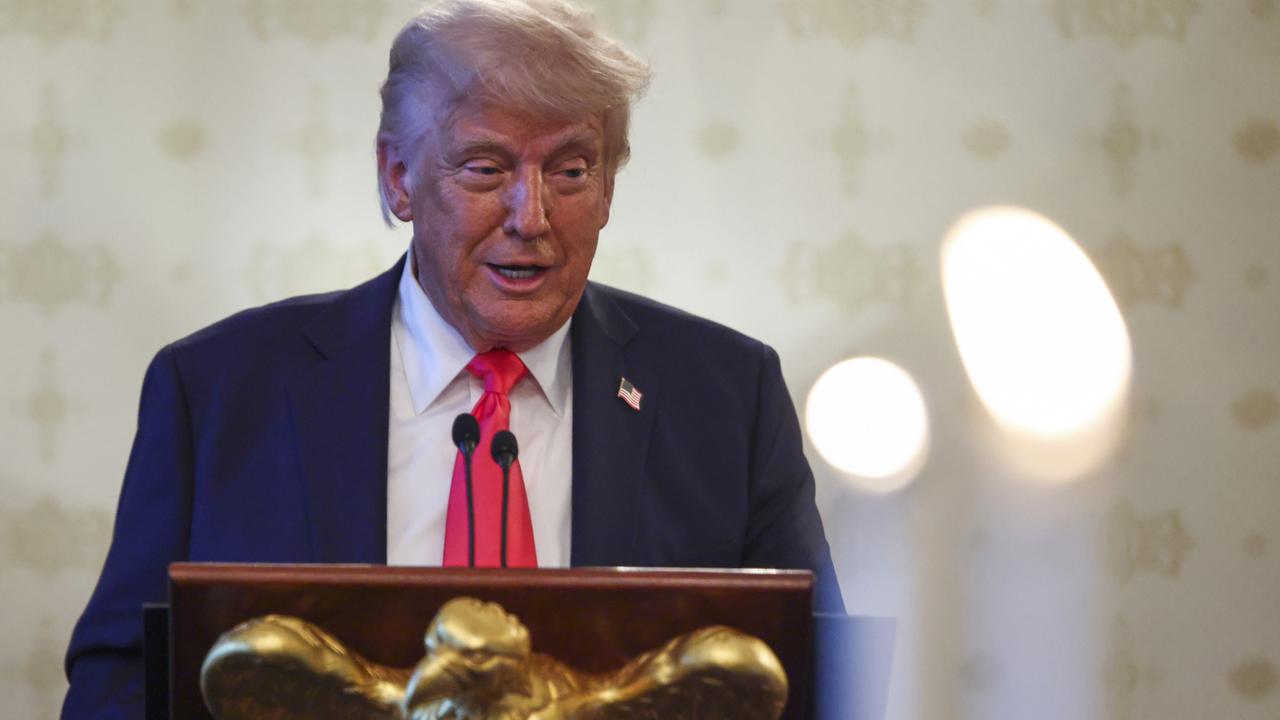Alcoa CEO Bill Oplinger says new Trump tariffs have potential to disrupt global trade flows


Alcoa is set to have potential wins, but as a global manufacturer also faces pressure as president-elect Donald Trump promises sweeping tariffs on everything coming into the United States.
Speaking to The Australian, Oplinger says Alcoa already gets the benefit of the “232 Tariffs” that Trump slapped on steel and aluminium imports during his first term. These were designed to protect the US steel industry but also gives US aluminium manufacturing a boost. Canadian steel is also exempt. However, Oplinger says it’s still too early to consider what the impact on Alcoa’s entire operations will be.
“As we think through the impact of tariffs we consider it from a global perspective…we’ve got 27 sites, nine countries we only have two smelters in the US, we’ve got 11 smelters globally, only two are in the US”.
“We don’t know precisely what the administration is going to do around tariffs”.
As a globally-connected company including with one smelter in Portland, Victoria and mines and three refining operations in Western Australia, Oplinger says tariffs have the potential to be “disruptive to global trade flows”. Alcoa also has operations across Europe, both inside and out of the EU. The Europe is expected to respond with its own tariff regime if barriers are put in place in the US.
“Ultimately, we believe in free and fair trade. However, if there are tariffs put on, whether it’s in the US or in Europe, we, you know, work with the governments to position Alcoa in the best possible way”.

Oplinger was speaking on the sidelines of the UBS Australasian investor conference in Sydney. He has just closed out the $US2.2bn ($3.3bn) friendly acquisition of the ASX-listed Alumina. This was the long time joint venture junior partner, and largely a holding company, in the Alcoa’s extensive Australian operations.
Alumina was spun out of WMC more than two decades ago, a move that paved the way for BHP to buy out the Melbourne miner’s giant Olympic Dam copper mine. As part of the Alumina buyout, the Pittsburgh-based Alcoa committed to retain a presence for local investors on the ASX under a secondary listing. Alcoa now has around 4000 direct employees here.
The energy intensive nature of aluminium production means Alcoa is one of the world’s biggest industrial electricity users. Indeed, its smelting operation in Portland in Victoria represents as much as 10 per cent of the state’s electricity demand during peak times. Portland has a long term energy supply deal with AGL Energy and the state government that locks in lower cost power until 2035.
However, Oplinger says the energy supply conversations need to start now to give the operations more certainty beyond that agreement.
“Between now and the 2030s, we need a really strong energy policy that’s got to be a combination of renewables plus base load”.
With an intense public debate running around nuclear policy - he recently met with opposition leader Peter Dutton as well separate meetings to several cabinet ministers, Oplinger says Alcoa has always been agnostic about how power is generated: “As long as it’s low-cost and sustainable”. He points out Alcoa is a big beneficiary of hydropower in Quebec, Canada and has access to low cost gas in the US.
“What we’ve talked to folks in Canberra about is we’re fairly agnostic around what that base load capacity looks like, as long as it’s low-cost and constant”.
“It’s important for us to have sustained energy, and we would prefer it to be green,” he says.
This too means access to low cost gas, which remains an increasing issue in Western Australia as onshore gas producers push for access to export markets. Currently, Alcoa is paying around half the rate for gas in the US as it does for operations here, including refineries in Western Australia.
(Aluminium) is a global commodity. It’s fungible around the world. So Portland competes with China and the US.
“So when we look at every asset around the world, we’re driving for the lowest cost energy, because it’s got to be competitive globally”.
Aluminium is one of the most widely used metals after iron and steel, and is a key input into to the car industry, construction, renewables and even in mobile handsets. However a supply boom from China has mean the price has remained under pressure years. With voluntary 45 million tonne a year production cap from China given the huge amount of energy in production, Oplinger is confident the dynamics are swinging back in his favour. This is why it is so important to get the energy equation right.
“Over the last 20 years, (aluminium) has been a supply side story. Supply has met demand. As we transition a sustainable economy demand we think this demand will continue to grow. The question will be whether supply can keep up with it. And with the Chinese caps, we think that fundamentally changes the industry”.
Coles finds support
For all the reputational noise around supermarkets and damning allegations from the competition regulator into how they go about discounting, Coles has found strong support from one area: shareholders.
Coles’ investors have given resounding support to the supermarket, rewarding the board with a 97 per cent vote in support of the remuneration report and overwhelming backing to the election of new directors including former Telstra boss Andy Penn and re-election of two directors (Abi Cleland and Richard Freudenstein).
Most large ASX companies usually get some sort of protest vote even during a good year, but this was barely the case with Coles, suggesting much of the noise the supermarket faces has been externally driven. Over at Woolworths, after arguably a very ordinary year for the retailer, investors there delivered a 96.5 per cent vote in support of the remuneration report at last month’s annual meeting.

This comes during an annual meeting when investors have been prepared to issue strikes. Names like Perpetual, CSL, ASX Nine have been hit with strikes. Fund manager Platinum was hit with a massive protest vote for the second year in a row, where shareholders on Tuesday issued a 72 per cent vote against the remuneration report. (Platinum escaped motion for a board spill).
It’s this support that has given Coles chairman James Graham the confidence to hit out at the politicisation of supermarkets. Graham points out over the last twelve months Coles has participated in no less than nine separate Federal Government, State Government, and ACCC reviews into some aspect of supermarket retailing. Inflation and its drivers are just as complex as the supply challenges faced during Covid or natural disasters, and this means there needs to be a more constructive way forward for business and governments, Graham says.
However, all this firm shareholder backing could quickly evaporate depending on how the ACCC case unfolds. Coles boss Leah Weckert was quick to declare the supermarket would challenge the allegations where the competition regulator alleges behaviour at the supermarkets where prices spiked for a brief period ahead of an item going onto promotion. The ACCC has claimed the discounting promises as “illusory”.
Coles is expected to file its defence in coming weeks, and in this is expected to spell out discounting agreements with customers as well as the mechanics of pricing. It is also expected to test a window for the cooling-off period between pushing through a higher price and putting an item on discount. This is a case that has extremely high stakes for both the regulator and supermarkets, this means it won’t be resolved quickly.
eric.johnston@news.com.au





The boss of US-based global aluminium giant Alcoa says the prospect of rising tariffs around the world has the potential to disrupt global trade flows, however Bill Oplinger says he is prepared to work with all governments.